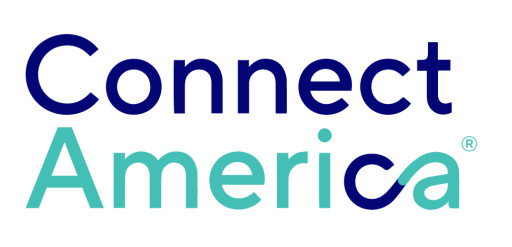
BALA-CYNWYD, Pa., April 18, 2024 (Newswire.com) - Connect America, a nationally recognized innovator of virtual care solutions that enable older adults and those living with chronic conditions to live safely and well at home, today announced the launch of its innovative fall prevention program.
Designed to help identify, predict and reduce falls among aging and at-risk populations through a comprehensive, integrated approach, the Connect America Fall Prevention Program combines early risk identification, predictive intelligence, participant engagement, education and support.
As the leading cause of death and injury among older adults in America, falls have severe implications, including injuries, hospitalizations, disabilities, and even mortality. Not only can a fall adversely impact an individual’s quality of life and independence, but the costs of falls and their long-term effects have an enormous burden on the U.S. healthcare system. According to the Centers for Medicare and Medicaid Services (CMS), the average cost of a fall is $30,000. In addition, nearly $50 billion a year is spent on medical expenses related to non-fatal fall injuries and a total of $754 million is spent on fatal falls.
The Connect America Fall Prevention Program is taking aim at this insurmountable problem with innovative connected health technology, such as AI-virtual engagement, predictive analytics, and support services to help identify and predict those at risk and deliver preventative care interventions to help minimize the potential of a fall or fall injury.
Rooted in evidence-based data, the program provides partnering healthcare organizations with unparalleled visibility into an individual’s mobility and signs of frailty, including shifts in health, activity, and engagement. This is essential because declines in activity are a significant predictor of falls. With this critical intelligence, care teams can quickly identify at-risk individuals and target personalized interventions to significantly reduce falls. In fact, research has shown that interventions can significantly reverse declining activity and prevent fall injuries by up to 37%.
The Connect America Fall Prevention Program incorporates customized protocols that can be configured to fit the needs of participating health partners and their patients or members, and encompasses the following:
- A CDC falls assessment
- Risk scoring for identification and stratification of population health
- CareSage™ Analytics and population-based reporting, including trends, SDOH impact and prediction
- Connected health devices for remote monitoring
- Esper, AI-virtual assistant for enhanced engagement, communicating surveys and educational content
- Customized protocols and call routing
- 24/7 concierge and clinical support
“For many older adults, a fall or fall injury can mean a complete loss of independence and the inability to live safely at home. A comprehensive fall prevention program like this can help payers, providers, and caregivers make meaningful strides toward safer environments that help reduce falls and improve quality and safety. At the same time, it will keep seniors out of the hospital and living independently and well in their homes,” said Rosemary Kennedy, Chief Health Informatics Officer at Connect America.
A recent article in the Journal of America Medicine Association (JAMA) found that fall-related injuries ranked as the third leading readmission diagnosis among at-risk older adults, demonstrating the importance of greater attention towards post-discharge fall prevention strategies as a cost-effective mechanism with the potential to reduce readmissions and improve patient care.
For healthcare plans, the value of a comprehensive program like Connect America’s Fall Prevention Program can not only help improve STAR ratings and meet HEDIS requirements set forth by the National Committee for Quality Assurance (NCQA), but it can also lower unnecessary care utilization and keep members safer in their homes. For hospitals and value-based care organizations, the program can help improve quality, increase patient satisfaction, and reduce the potential likelihood of costly readmissions.
“Every second of every day, an older adult (age 65+) in the U.S. suffers a fall. These numbers are devastating, but falls aren’t an inevitable consequence of aging. Connect America’s Fall Prevention Program empowers healthcare organizations with critical intelligence to identify high-risk individuals and target interventions for those who need it the most. The program is unique because it integrates predictive risk analytics, connected health devices, engagement, education and support into one comprehensive program,” said Janet Dillione, CEO of Connect America.
The Connect America organization is no stranger to finding efficient and effective solutions that help keep aging and at-risk populations safe and well at home. Last May, the organization published results from an IRB-approved study that demonstrated the effectiveness of its proprietary CareSage Analytics platform in preventing hospital readmissions, ED visits and overall hospitalization costs. Today, the organization has over 900,000 active subscribers, 3,000+ healthcare partners, 250K senior living residents, and 40K+ patients monitored.
To learn more about Connect America’s Fall Prevention Program, visit https://www.connectamerica.com/fall-prevention/.
Contact Information:Jane MacPherson
Communications Manager
[email protected]
16473027164
Original Source: Connect America Unveils Next-Generation Fall Prevention Program to Help Support Aging Populations Living at Home